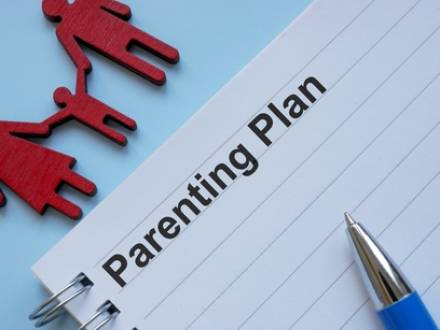Mistakes to Avoid in Parenting Time and Parenting Plans
 Creating a parenting time agreement (formerly known as "visitation") and a comprehensive parenting plan can be among the most important - and stressful - issues in a divorce. The parenting time agreement is a legal document that outlines exactly when each parent will spend time with his or her child.
Creating a parenting time agreement (formerly known as "visitation") and a comprehensive parenting plan can be among the most important - and stressful - issues in a divorce. The parenting time agreement is a legal document that outlines exactly when each parent will spend time with his or her child.
The parenting plan goes much further in-depth, detailing how pickups and drop-offs will be handled and much more. If you are going through a divorce, it can be extremely helpful to speak to an experienced Wheaton, IL family law attorney who can guide you through the process, helping you achieve outcomes that work for everyone involved.
How is Parenting Time Determined?
Parenting time encompasses regular day-to-day schedules as well as holidays and vacations. When determining parenting time, the court will consider the best interests of the child. If the child is old enough or mature enough, the child’s wishes may be a factor.
The child’s current relationship with each parent and siblings, as well as the mental and physical health of all those involved, will be considered. Each parent’s willingness to foster a continuing relationship between the child and his or her other parent is a significant factor when determining parenting time. If there is any history of domestic violence or abuse, this will be a consideration as well.
What Are the Most Common Mistakes Made in a Parenting Time Agreement?
The mistakes that often come back to haunt parents long after the ink is dry on the agreement include the following:
- A vague schedule quickly becomes a problem, often because of the use of terms like "reasonable visitation," which can be interpreted in many different ways. Be specific on exact days and times and arrangements for school breaks, holidays, and summer vacations.
- Failing to address transportation responsibilities is a common problem that can lead to confusion and frustration. Clearly outline which parent is responsible for transportation and where exchanges will take place.
- Not allowing some flexibility is a big mistake since children grow older, parents move and get different jobs, and schedules shift. Ensure your schedule allows for adjustments to avoid returning to court.
- Forgetting to address communication issues can lead to problems when expectations are vastly different. Include guidelines for co-parent communication and outline how important decisions will be shared or made.
What is a Parenting Plan?
A parenting plan is a written, comprehensive plan that describes each parent’s rights and responsibilities, building on the parenting time agreement. At a bare minimum, a good parenting plan includes the assignment of decision-making responsibilities, how information about the child is shared, where the child will primarily live (or if the arrangement is 50/50), and how holidays and vacations will be spent.
What Should Parenting Plans Avoid?
While it is a good idea to address every conceivable situation in a parenting plan, sometimes parents go too far. A judge is likely to disallow certain things placed in a parenting plan, such as:
- Placing restrictions on the other parent’s personal life, including dictating who a parent can date or even how he or she spends time with the child, is not likely to be approved by the judge unless it is a specific behavior that directly affects the child’s well-being.
- Although structure in scheduling is expected, inflexible or overly rigid schedules are not likely to be approved. Allow flexibility for a sick child, a schedule change, a sick parent, or an emergency.
- Clauses in the parenting plan that penalize a parent for such things as a missed visit or being five minutes late have no place in these plans. Focus more on conflict resolution strategies than on punitive provisions.
- Micromanaging the other parent’s parenting style can lead to unnecessary friction between parents. Each parent can determine daily decisions like meals and clothing choices.
Contact a DuPage County, IL Parenting Time Lawyer
Parenting time agreements and parenting plans will definitely benefit from the input of a knowledgeable Wheaton, IL parenting time attorney from Fawell & Fawell. We offer a practical, results-oriented approach; your family is our priority. Call 630-871-2400 to schedule a free consultation.

 630-871-2400
630-871-2400









